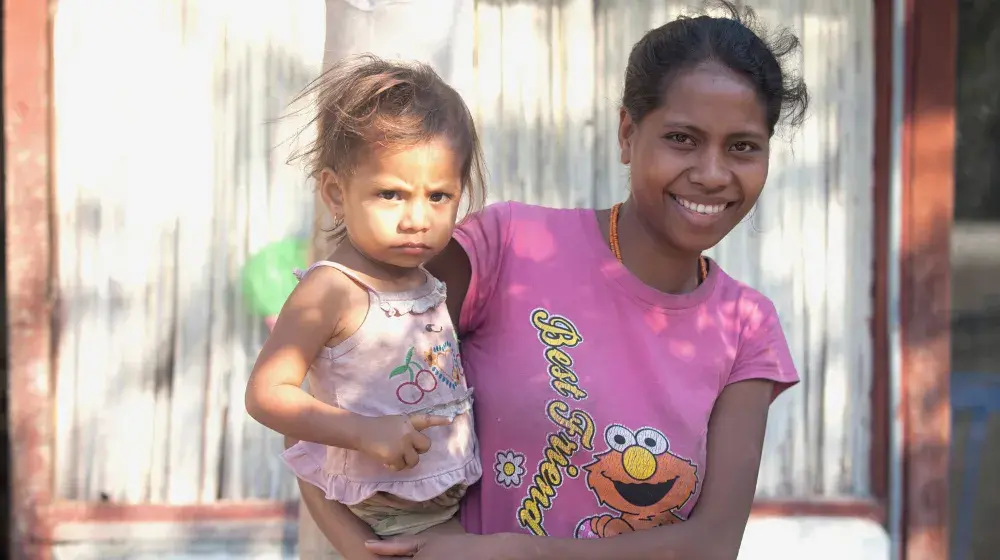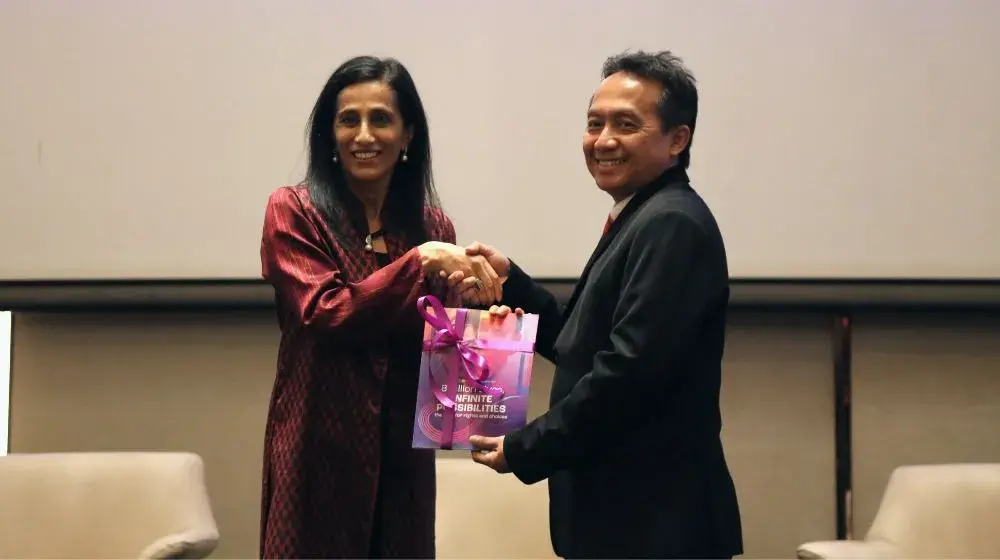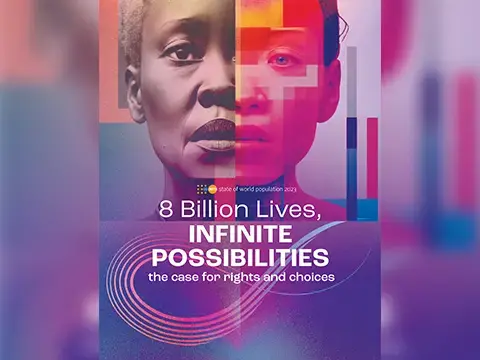 |
Grand Imam of the Istiqlal Mosque Prof. Nasaruddin Umar speaks to midwives, stressing that FGM/C has no ground in Islamic teachings.
|
 |
BATAM, November 3 2016: Female Genital Mutilation/Cutting (FGM/C) is a violation against women’s rights that has no basis in the Qur’an and the Haddith, according to Prof. Nasaruddin Umar, Grand Imam of the Istiqlal Mosque. A comprehensive cross sectoral approach is required to end the practice that preserve gender inequality.
The above statement is among the key points discussed during the Special Session on Female Genital Mutilation/Cutting (FGM/C) at the Fifth National Congress and 2016 Annual Scientific Meeting in Batam, attended by more than 100 members of the Indonesia’s Midwives Association (IBI).
FGM/C, widely practised by communities across Indonesia, is done with the purpose of purifying girls and controling their sexual urges later as adults. Many believe that FGM/C is part of religious requirement and, like male circumcision, has medical benefits.
“The practice is a socio-cultural-religious issue, mainly because of mis-interpretation of Islamic teachings. And since it causes more mudharat (bad impacts), it is recommended not to do FGM/C,” explained Prof. Nasaruddin Umar, Grand Imam of the Istiqlal Mosque.
According to the World Health Organization, most common FGM/C in Indonesia is type I (partial or total removal of the clitoris) and type 4 (defined as various harmful procedures for non medical purposes, like pricking, piercing, incising and scraping). A 2010 study by Prof. Dr. Jurnalis Uddin from the Faculty of Medicine - YARSI University revealed that 44% hospitals and clinics in Indonesia provide FGM/C type 1 service and 56% provide type 4.
Local religious leaders can play a crucial role in ending FGM/C because they have significant influence over their community members and it is them that community members go to for advice. “Local religious leaders should be actively engaged in educating the public to not do FGM/C,” Nasaruddin said, adding that special effort should be designed to improve awareness of local religious and community leaders on FGM/C and gender inequality.
Dr. Eny Gustina, MOH Director of Family Health stressed the importance of midwives as community health workers to uphold professional ethics, values and standard and to educate the public about the short- and long-term reproductive health risks that are linked to FGM/C to help community members make informed decision.
At the meeting, the participants agreed that a comprehensive multisectoral approach is needed. The Ministry of Women’s Empowerment and Child Protection, in strong collaboration of all stakeholders from various sectors, will initiate dialogue at national and subnational levels and launch concrete joint advocacy activities on the danger of FGM/C. A set of recommendations came out from the meeting and was presented during the Plenary Forum presided by the President of IBI and attended by 3500 midwives from all over Indonesia who were participating in the 2016 National Midwives Meeting.
Tags: FGM/C





